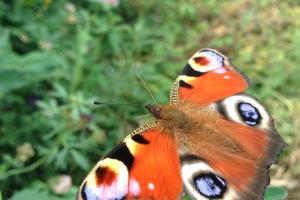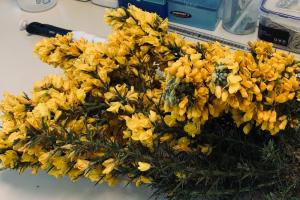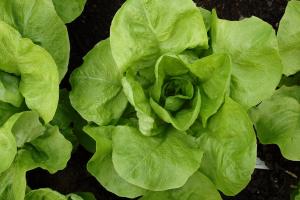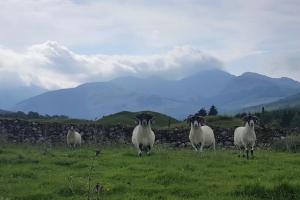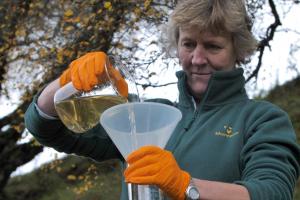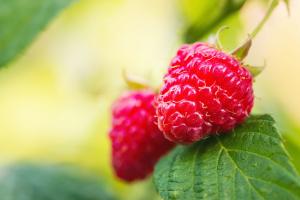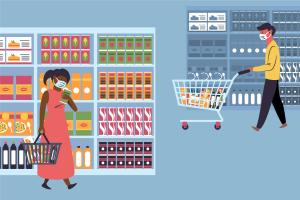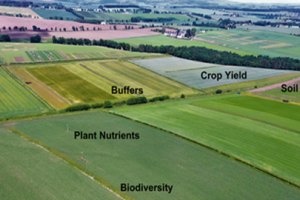The farming community are under pressure to not only produce more food and remain profitable but also for their practices to be more sustainable. Despite these pressures, the farming community is experimenting, adapting and sharing their findings. In this blog, Dr Lorna Cole, SRUC, discusses a series of online Think Tanks capturing the wide variety of practices that farmers are trialling, and to share ideas on how wider outcomes could be monitored, in a SEFARI Gateway Responsive Specialist Advisory Group project.
Agriculture bears the brunt of having to reliably supply food, ensure its own economic viability, while complying with environmental concerns. Farming comes under a lot of pressure to deliver produce, despite unfavourable climatic variation, changes in pest behaviour and the control of invasive plants.
In this blog, Ajay Iyer and Wendy Russell consider a different approach and discuss how invasive or “undesirable” plants such as Gorse (Ulex europaeus) could serve as an alternate and sustainable source of protein.
Zoonotic pathogens are microorganisms transmitted by animals, which cause disease and illness in humans. Many of them are foodborne and are commonly associated with farmed animals, or less frequently with wildlife. However, some pathogens are also transmitted into the food-chain indirectly from animals onto plants, via faecal contamination of water used for irrigation or via the soil where the plants grow. If the plants are destined for consumption, e.g., fruit and vegetable crops that are normally consumed raw or minimally processed, this can become a foodborne hazard.
With the pandemic turning our lives upside down, the use of digital communication has accelerated overnight. Webinars, Teams meetings, Digital classrooms, Virtual brainstorming boards, to name but a few. They have all helped in keeping us connected from the safety of our own homes. However, these virtual technologies achieve so much more than simply enabling conversations to continue. They have removed barriers - social, physical, economic, geographical - and in removing these barriers they have made research more accessible.
The protozoan parasite Cryptosporidium is a significant cause of diarrhoeal disease in humans and animals in UK and many other countries across the world. Cryptosporidium are highly successful parasites as they can infect many different hosts, multiplying in the gut and then shedding millions of parasite oocysts (eggs) in the faeces, where they can contaminate the environment and are a source of infection for other hosts.
The production of soft fruit is an important commercial activity in Scotland, generating more than £115 million in income for growers in 2018. This industry is underpinned by the national (UK) collection of high health raspberry and blackcurrant varieties. These collections are propagated in biosecure glasshouses and are tested annually to guarantee that they are free from infection by particular pests and pathogens. Viruses are a major cause of disease of soft fruit plants growing in the field.
Since March 2020, attempts to control the spread of COVID-19 have led to substantial and far-reaching changes to everyday life, with social restrictions of varying severity imposed, relaxed, and reimposed over the intervening 12 months. With habitual dietary intake largely dependent on environmental cues, significant changes in our typical lifestyles and everyday surroundings might be expected to have consequences for our diets and food habits.
The past year has been, and 2021 will undoubtedly remain, challenging for us all. At Gateway we are focussing our efforts on continuing to support the COVID-19 recovery response while maintaining momentum for knowledge exchange partnership working across environment, land, agriculture, food and rural community priorities.
Currently, we are all experiencing unique working conditions, leading us to adapt to new ways of engaging and learning.
In this blog Dr Claire Hardy, who was awarded SEFARI Gateway Responsive Opportunity Funds, explores the use of virtual technology to engage farmers and the agricultural community, helping farmers to experience in-field events safely, flexibly, and remotely.
Winter is here and this might conjure thoughts of cosy nights by a fire, mulled wine, and the holiday season. However, it also brings colder days and longer nights and for some Seasonal Affective Disorder (SAD).
In this guest blog, Eilidh McNaughton outlines what SAD is, the causes, and provides some tips on how we can all look after our wellbeing this winter.
